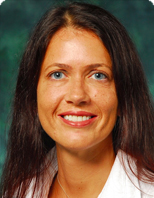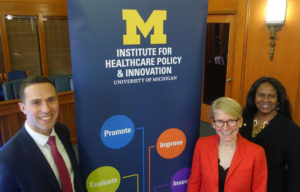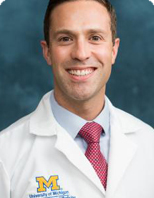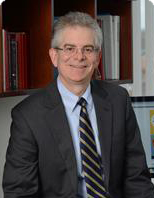Since the start of the 116th Congress, the University of Michigan’s Washington, D.C. office has supported six U-M faculty members testifying before the House of Representatives and Senate in Washington, D.C. The topics of the testimonies included protecting the electric grid, the impact of climate change on infrastructure, election security, and more. Members of Congress from Michigan, as well as nationwide, recognize the value of having University of Michigan experts in the room when making important legislative decisions and debating pressing national issues. Further information about the professors and their testimonies are below:
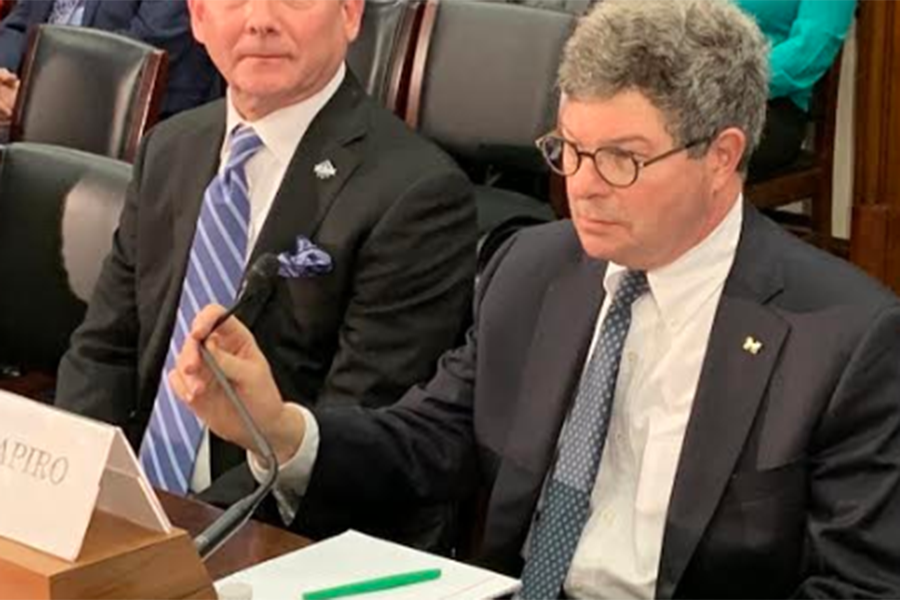 Matthew Shapiro, the Lawrence R. Klein Collegiate Professor of Economics at U-M, before the U.S. House Committee on Small Business about the potential impact the recent partial government shutdown had on small businesses. Read more about his testimony here.
Matthew Shapiro, the Lawrence R. Klein Collegiate Professor of Economics at U-M, before the U.S. House Committee on Small Business about the potential impact the recent partial government shutdown had on small businesses. Read more about his testimony here.
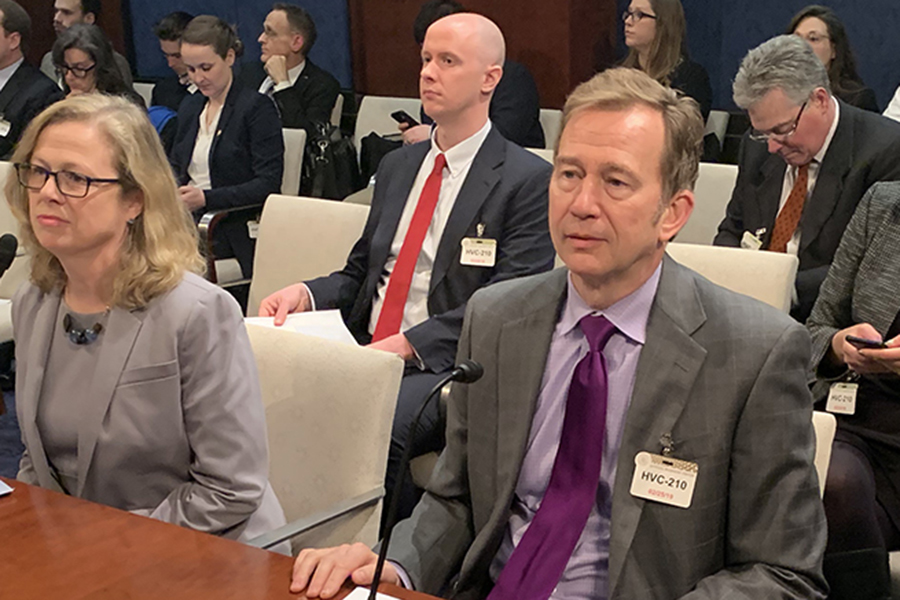 Tom Lyon, professor of business economics and public policy and of environment and sustainability testified before the U.S. House Committee on Transportation and Infrastructure about ways he believes infrastructure improvement, as well as the free market, can help lessen the impacts of climate change. Read more about his testimony here.
Tom Lyon, professor of business economics and public policy and of environment and sustainability testified before the U.S. House Committee on Transportation and Infrastructure about ways he believes infrastructure improvement, as well as the free market, can help lessen the impacts of climate change. Read more about his testimony here.
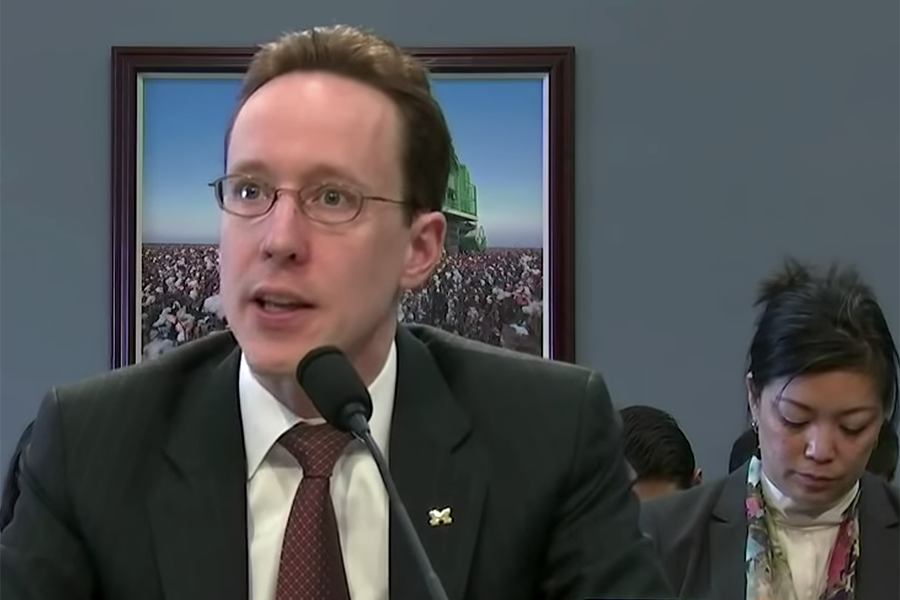 J. Alex Halderman, professor of electrical engineering and computer science, testified before the House Appropriations Committee Subcommittee on Financial Service and General Government, urging lawmakers to approve additional funding for election cybersecurity prior to the upcoming 2020 elections. Read more about his testimony here.
J. Alex Halderman, professor of electrical engineering and computer science, testified before the House Appropriations Committee Subcommittee on Financial Service and General Government, urging lawmakers to approve additional funding for election cybersecurity prior to the upcoming 2020 elections. Read more about his testimony here.
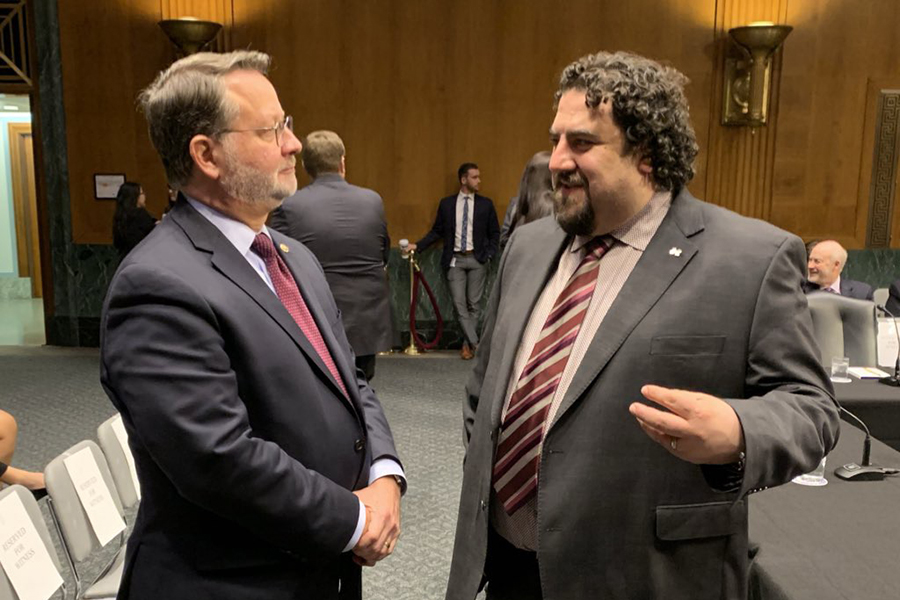 Justin Kasper, an associate professor of climate and space sciences and engineering, testified before the Senate Committee on Homeland Security and Governmental Affairs in March about how best to protect the country’s power grid from space weather. Read more about his testimony here.
Justin Kasper, an associate professor of climate and space sciences and engineering, testified before the Senate Committee on Homeland Security and Governmental Affairs in March about how best to protect the country’s power grid from space weather. Read more about his testimony here.
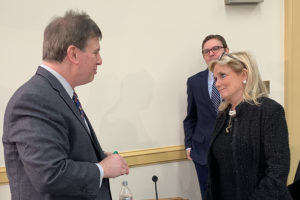 Adam Finkel, clinical professor of environmental heal sciences, testified before the House Energy and Commerce Committee Subcommittee on the Environment and Climate Change, addressing the need for the Environmental Protection Agency to better protect workers from harmful chemicals and work closer with the Occupational Health and Safety Administration. Read his testimony here.
Adam Finkel, clinical professor of environmental heal sciences, testified before the House Energy and Commerce Committee Subcommittee on the Environment and Climate Change, addressing the need for the Environmental Protection Agency to better protect workers from harmful chemicals and work closer with the Occupational Health and Safety Administration. Read his testimony here.
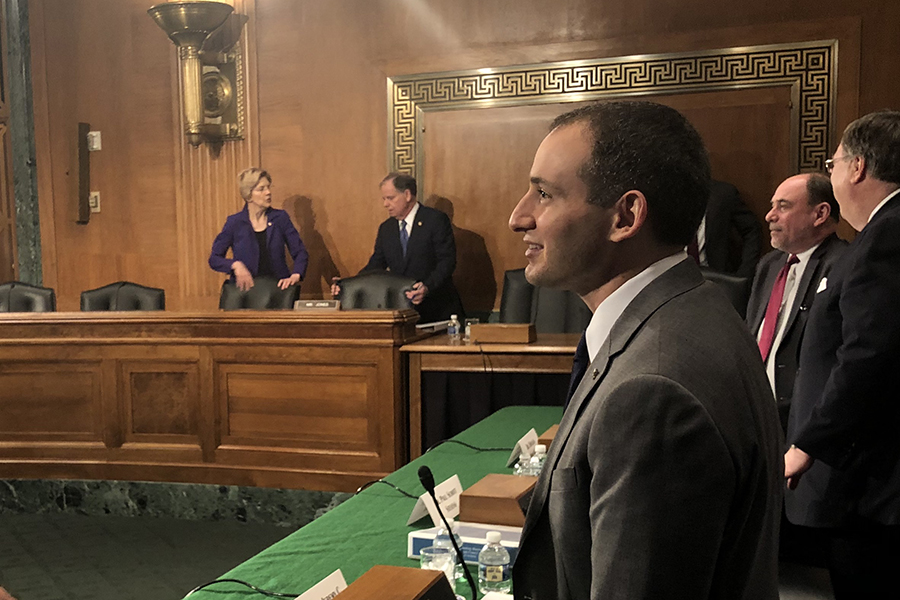 Jeremy Kress, assistant professor of business law, testified before the U.S. Senate Committee on Banking, Housing, and Urban Affairs about proposals to de-emphasize or eliminate the designation for “systemically important non-bank financial institutions,” such as insurance and mortgage companies. He warned that such a move would be misguided and could open up the financial system to the kinds of problems that roiled the economy in 2008. Read more about his testimony here.
Jeremy Kress, assistant professor of business law, testified before the U.S. Senate Committee on Banking, Housing, and Urban Affairs about proposals to de-emphasize or eliminate the designation for “systemically important non-bank financial institutions,” such as insurance and mortgage companies. He warned that such a move would be misguided and could open up the financial system to the kinds of problems that roiled the economy in 2008. Read more about his testimony here.

